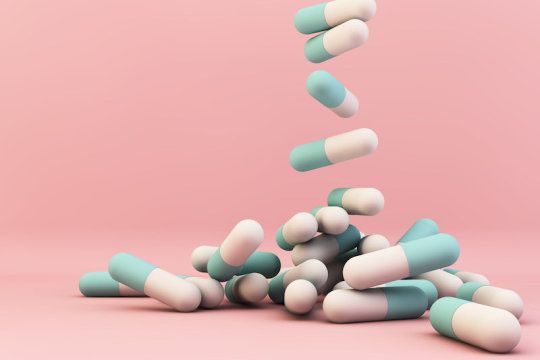The first time Vayu Maini Rekdal manipulated microbes, he made a decent sourdough bread. At the time, young Maini Rekdal, and most people who head to the kitchen to whip up a salad dressing, pop popcorn, ferment vegetables, or caramelize onions, did not consider the crucial chemical reactions behind these concoctions.
Even more crucial are the reactions that happen after the plates are clean. When a slice of sourdough travels through the digestive system, the trillions of microbes that live in our gut help the body break down that bread to absorb the nutrients. Since the human body cannot digest certain substances — all-important fiber, for example — microbes step up to perform chemistry no human can.
“But this kind of microbial metabolism can also be detrimental,” said Maini Rekdal, a graduate student in the lab of Professor Emily Balskus and first-author on their new study published in Science. According to Maini Rekdal, gut microbes can chew up medications, too, often with hazardous side effects. “Maybe the drug is not going to reach its target in the body, maybe it’s going to be toxic all of a sudden, maybe it’s going to be less helpful,” Maini Rekdal said.
In their study, Balskus, Maini Rekdal, and their collaborators at the University of California San Francisco, describe one of the first concrete examples of how the microbiome can interfere with a drug’s intended path through the body. Focusing on levodopa (L-dopa), the primary treatment for Parkinson’s disease, they identified which bacteria are responsible for degrading the drug and how to stop this microbial interference.
